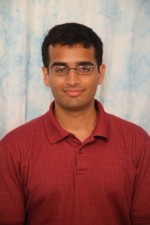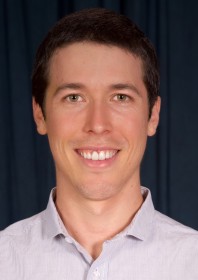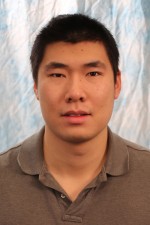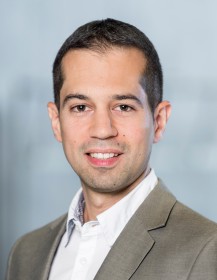Automatic Analysis of Facial Actions: Learning from Transductive, Supervised and Unsupervised Frameworks
Abstract Automatic analysis of facial actions (AFA) can reveal a person's emotion, intention, and physical state, and make possible a wide range of applications. To enable reliable, valid, and efficient AFA, this thesis investigates both supervised and unsupervised learning. Supervised learning for AFA is challenging, in part, because of individual differences among persons in face [...]
Measuring Human Motion in Social Interactions
Tomas Simon Carnegie Mellon University Abstract This thesis develops methods for social signal reconstruction---in particular, we measure human motion during social interactions. Compared to other work in this space, we aim to measure the entire body, from the overall body pose to subtle hand gestures and facial expressions. The key to achieving this without placing [...]
Robust and Natural Gait via Neuromuscular Control for Transfemoral Prostheses
Nitish Thatte Carnegie Mellon University February 03, 2017, Robust and Natural Gait via Neuromuscular Control for Transfemoral Prostheses, Porter Hall A19C Abstract We present work towards developing a control method for powered knee and ankle prostheses based on a neuromuscular model of human locomotion. Previous research applying neuromuscular control to simulated biped models and to [...]
Beyond Geometric Path Planning: Paradigms and algorithms for modern robotics
Kris Hauser Associate Professor, Duke University Abstract The development of fast randomized algorithms for geometric path planning – computing collision-free paths for high dimensional systems – was a major achievement in the field of motion planning in the 2000's. But since then, recent advances in affordable robot sensors, actuators, and systems have changed the robotics [...]
Me Car, You Human: Understanding Human Activity for Intelligent Collaborative Robotic Vehicles
Eshed Ohn-Bar Postdoctoral Researcher, University of California, San Diego Abstract The goal of my research is to develop human-centered algorithms for intelligent and autonomous systems. The research emphasizes modeling the perception, intent, and behavior of humans inside and around a vehicle. Over a decade has passed since the DARPA Grand Challenges, and the way in [...]
Online Lidar and Vision based Ego-motion Estimation and Mapping
Ji Zhang Carnegie Mellon University Abstract In many real-world applications, ego-motion estimation and mapping must be conducted online. In the robotics world, especially, real-time motion estimates are important for control of autonomous vehicles, while online generated maps are crucial for obstacle avoidance and path planning. Further, the complete map of a traversed environment can be [...]
Pathway Toward Vision Restoration, Artificial Vision, Artificial Retina, Optogenetics
José Alain Sahel, MD Professor & Chairman, Department of Ophthalmology, University of Pittsburgh, School of Medicine Abstract Progress in ophthalmology over the past decade moved preclinical data to clinical proof-of-concept studies bringing innovative therapeutic strategies to the market. Diseases such as retinitis pigmentosa (RP) and age-related macular degeneration (AMD) destroy photoreceptors but leave intact and [...]
Visual SLAM with Semantic Scene Understanding
Event Location: NSH 1507Bio: Shichao Yang is a Ph.D. student in the Mechanical Engineering at Carnegie Mellon University, advised by Prof. Sebastian Scherer in the Robotics Institute. He received a B.S in Mechanical Engineering from Shanghai Jiao Tong University in 2013. His research focuses on visual simultaneous localization and mapping (SLAM) combined with semantic scene [...]
Towards Agile Flight of Vision-controlled Micro Flying Robots: from Active Vision to Event-based Vision
Davide Scaramuzza Assistant Professor of Robotics, University of Zurich Abstract Autonomous quadrotors will soon play a major role in search-and-rescue and remote-inspection missions, where a fast response is crucial. Quadrotors have the potential to navigate quickly through unstructured environments, enter and exit buildings through narrow gaps, and fly through collapsed buildings. However, their speed and [...]
e-Intangible Heritage
Event Location: NSH 1305Bio: Dr. Katsushi Ikeuchi is a Principal Researcher of Microsoft Research Asia, stationed at Microsoft Redmond campus. He received a Ph.D. degree in Information Engineering from the University of Tokyo in 1978. After working at Artificial Intelligence Lab of Massachusetts Institute of Technology as a pos-doc fellows for three years, Electrotechnical Lab [...]









